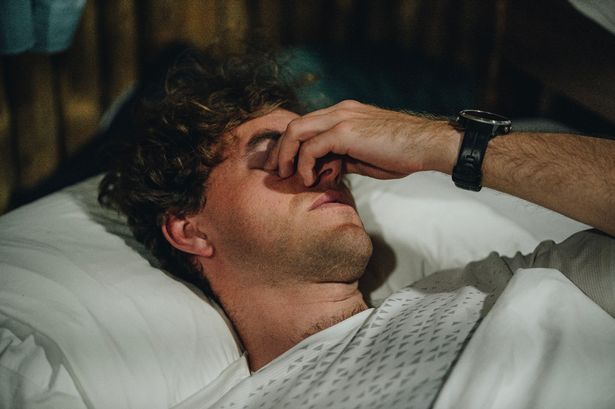Health
NHS Warns of Night Sweats: Common Symptom to Monitor

The National Health Service (NHS) has issued important guidance for individuals who experience night sweats regularly. While this symptom can often be attributed to benign factors, it may also indicate a more serious health issue in certain cases. The NHS alert, shared on social media platform X, emphasizes the need for awareness regarding this common condition.
Night sweats, defined as excessive sweating during sleep that results in soaked nightclothes and bedding, can occur even in cool sleeping environments. According to the NHS, “It’s common to sweat during the night if your room or your bedding is making you too hot.” However, if individuals repeatedly wake up drenched in sweat, seeking medical advice from a general practitioner (GP) is strongly recommended.
Understanding Night Sweats and Their Causes
The NHS outlines several possible causes of night sweats, which can range from harmless environmental factors to more severe medical conditions. Common triggers include high room temperatures, heavy bedding, and certain lifestyle choices. Yet, in some instances, the underlying cause remains unknown.
In more serious cases, night sweats can be a symptom of cancer. Cancer Research UK identifies “very heavy night sweats” as a general warning sign of various cancers. The NHS notes that certain cancers, including leukemia, can lead to increased sweating. According to Leukaemia Care, approximately 30 percent of leukemia patients report experiencing night sweats.
The NHS advises individuals to consult their GP if they notice symptoms such as:
– Regular night sweats without an obvious cause
– Soaking wet sheets or clothing upon waking
– Accompanying symptoms like unexplained weight loss or fever
The health service reassures the public that sweating at night, particularly during warmer months, is not unusual. However, when sweating becomes excessive and disrupts sleep, it may warrant further investigation.
Night sweats can be distressing for those affected, impacting overall sleep quality and daily life. Awareness of this symptom is crucial, as early identification of potential health issues can lead to timely intervention and better outcomes.
In summary, while night sweats are often harmless, the NHS stresses the importance of monitoring this symptom. Individuals experiencing severe or persistent night sweats should seek medical attention to rule out any serious underlying conditions.
-

 Health3 months ago
Health3 months agoNeurologist Warns Excessive Use of Supplements Can Harm Brain
-

 Health3 months ago
Health3 months agoFiona Phillips’ Husband Shares Heartfelt Update on Her Alzheimer’s Journey
-

 Science2 months ago
Science2 months agoBrian Cox Addresses Claims of Alien Probe in 3I/ATLAS Discovery
-

 Science2 months ago
Science2 months agoNASA Investigates Unusual Comet 3I/ATLAS; New Findings Emerge
-

 Science1 month ago
Science1 month agoScientists Examine 3I/ATLAS: Alien Artifact or Cosmic Oddity?
-

 Entertainment5 months ago
Entertainment5 months agoKerry Katona Discusses Future Baby Plans and Brian McFadden’s Wedding
-

 Science1 month ago
Science1 month agoNASA Investigates Speedy Object 3I/ATLAS, Sparking Speculation
-

 Entertainment4 months ago
Entertainment4 months agoEmmerdale Faces Tension as Dylan and April’s Lives Hang in the Balance
-

 World3 months ago
World3 months agoCole Palmer’s Cryptic Message to Kobbie Mainoo Following Loan Talks
-

 Science1 month ago
Science1 month agoNASA Scientists Explore Origins of 3I/ATLAS, a Fast-Moving Visitor
-

 Entertainment2 months ago
Entertainment2 months agoLewis Cope Addresses Accusations of Dance Training Advantage
-

 Entertainment4 months ago
Entertainment4 months agoMajor Cast Changes at Coronation Street: Exits and Returns in 2025









